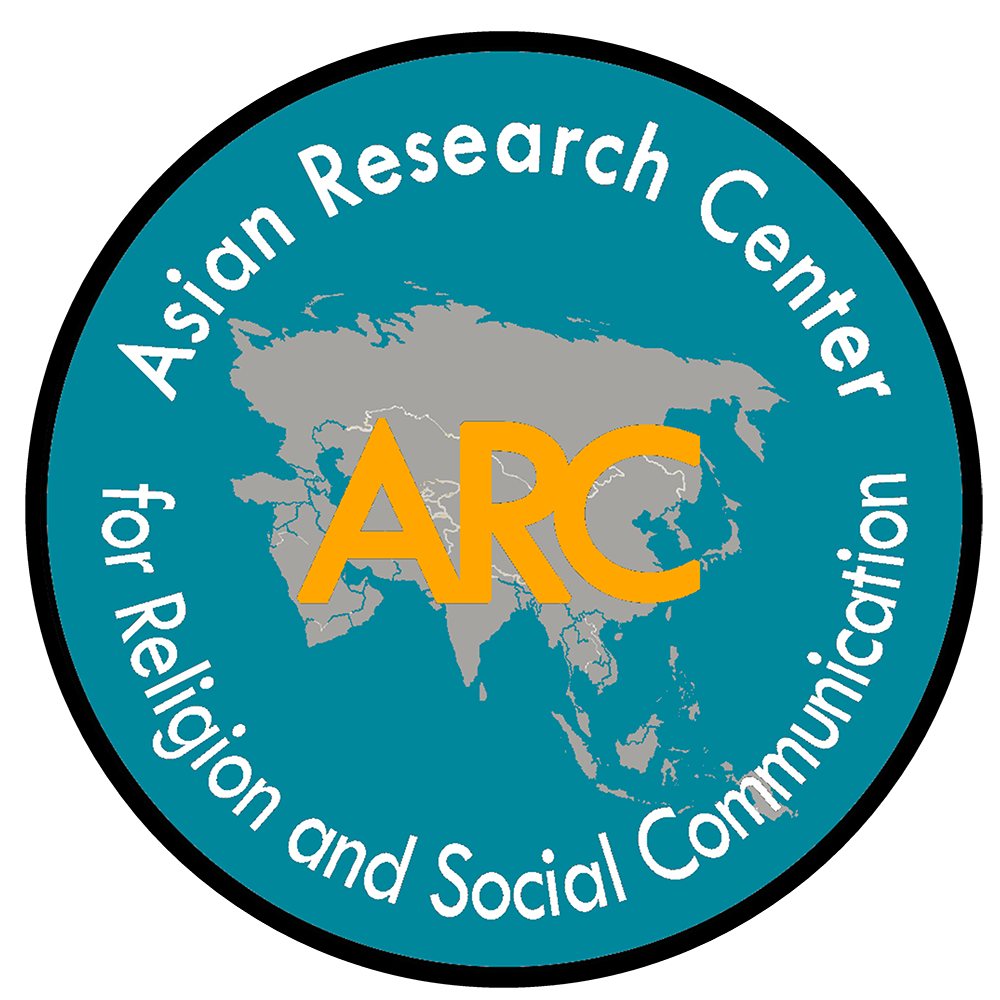9th ARC International Roundtable Conference Report
The 9th Roundtable Conference of the Asian Research Center for Religion and Social Communication (ARC) dealt with the theme “Religion in Digital Asia II: Realities, Experiences, Visions,” and was held at the Centurion University of Technology and Management (CUTM), Jatni, Bhubaneswar from February 6-10, 2017. Twelve research papers were presented by communication scholars and researchers from India, Bangladesh, Thailand, and the Philippines. This year’s conference was a continuation of the 8th ARC Roundtable held at Saint John’s University in Bangkok in 2016.
The conference formally opened with the welcome address of Dr. Chandrabhanu Pattanayak, director of the Institute of Knowledge Societies of CUTM and this year’s host. Dr. Binod Agrawal, the India coordinator of the ARC, also welcomed the delegates. Dr. Anthony Le Duc, svd, assistant director of the ARC, gave a report and overview of the previous roundtable. Dr. Abasara Beuria, former ambassador of India to the United States and Dr. D. P. Pattanayak also graced the occasion.
The opening of the roundtable coincided with the inauguration of the photograph exhibit on Jagannath of Puri. Dr. Franz-Josef Eilers, director of the ARC, cut the ribbon to mark the formal opening of the photo exhibit. He also led the lighting of the lamp along with the delegates and guests. Dr. Eilers shared in his message the meaning and significance of arts and culture and how they manifest the human expression of religiosity and convictions.
Dr. Chainarong Monthienvichienchai, chancellor of Saint John’s University, Bangkok, Thailand presented the brief history of the ARC and delivered his message to commence the first session of the roundtable.
Dr. Eilers delivered the keynote address, which once again underlined the need for a more extensive and developed research on the relation between religion and social communication especially in view of new technological developments. All religions in Asia are “confronted” with the possibilities but also of developments of new ways of communicating in a digital world. How far are religions aware of this development? How do they react, see and develop possibilities of integrating existing spiritual groundings. How to develop them into a digitized world, which, however, does not exist without an analogue identity?
In Religion books analogue and digital are to be related and developed in a (modern) new way to respond to basic human needs for the life of the community and also in view of the formation of students beyond technology and to equip them for a full life based and nourished by religion.
Over the next two days, the papers were presented in the following order:
Digital Media and Concept of Time and Space in Multi-religious Sub-Continent: An Analysis
Dr. Binod C. Agrawal, Gujarat Vidyapith, Ahmedabad, India
Online Religion and Public Sphere in India
Dr. Gnana Patrick, University of Madras, India
Positive Contributions of Digital Media in Catholic Youth Movements: An Analysis
Mr. Leslin Bastian, MICA, Ahmedabad, India
Buddhist Environmentalism in the Digital Age
Dr. Anthony Le Duc, svd, Assumption University, Bangkok, Thailand; Saengtham College, Samphran, Thailand
Neo-Buddhism Goes Online: The Digital Revolution of India’s ‘Oppressed Dalit’
Dr. Keval J. Kumar, MICA, Ahmedabad, India
Goddess of the Nation: Semi-religious Iconography in the Digital Age
Dr. K. Unni Krishnan, Manipal University, Mangalore, India
Religious Sensitivity and Freedom of Speech and the Recent Trends of Killing Nastik (Atheists) in Bangladesh: An Overview
Dr. Md. Abdur Razzque Khan, University of Dhaka, Bangladesh
Expression and Formation of the Religious Identity in the Networked Publics: Exploring the Case of the Malayali Muslim Migrants in the United Arab Emirates
Mr. Ahammed Junaid NP, MICA, Ahmedabad, India
Multi-religious Expressions of Non-Christian Foreign Students in a Christian School: The Digital Dimension
Mr. Jose S. Destura Jr. and Mr. Nelson V. Arnante, University of Santo Tomas Graduate School, Philippines; De La Salle Health Sciences Institute, Philippines
Mediatization of Jain Religion in 21st century Digital Age: A Critical Appraisal of Jain Diksha Ceremony
Dr. Komal Shah, LJ Institute of Media and Communications, Ahmedabad, India
A Study on the Usage of Online Media by Selected Hindu Temples in South India
Dr. Padma Rani, Manipal University, India
The Role and Impact of Digital Technology Use in Pilgrimage in Thanjavur Region, South India: An Investigation
Dr. Sebastian Periannan, Saint Peter’s Pontifical Institute, Bengaluru, India
The participants visited the tribal museum of Odisha. This museum is a showcase of the different artifacts belonging to the descendants of tribal communities of Odisha. It appears that the State of Odisha India has the largest number of tribal communities in any single state of India. A dinner was also hosted at the museum by the director of the museum to formally welcome the participants.
On the afternoon of the second day, the participants visited the 12th-century Sun Temple in Konark, Odisha. Listed as a UNESCO World Heritage site, the temple was built by king Narasimhadeva I of the Eastern Ganga Dynasty in 1255. It is shaped like a chariot with intricate stone carvings. The temple is dedicated to the sun god Surya.
In the concluding plenary, Dr. Eilers expressed his gratitude to Dr. Pattanayak and Dr. Agrawal for the hosting and financially supporting the 2017 Roundtable.
The Vice Chancellor of CUTM, Dr. Haribandhu Panda, expressed his thanks to ARC for trusting CUTM to host the roundtable. He is fully convinced of the need to inculcate among students the value and principles that emanates from our religious beliefs and convictions. As a sign of this conviction, he is soliciting support from the visiting educators and presenters on how to proceed with offering a mandatory subject which will be incorporated to their existing curricula.
The next ARC Roundtable is slated on October 8 to 11, 2018 at Saint John’s University, Bangkok with the theme “Religious Communication in Multi-cultural Asia: Realities, Experiences, Challenges.” The conference will look into the religious communication dimensions of different Asian culture and their ways of communicating.








![[RT2025]Registration Open for All Participants](https://asianresearchcenter.org/storage/image/2025/07/poster-registration-1752803792.png.160x96.webp)